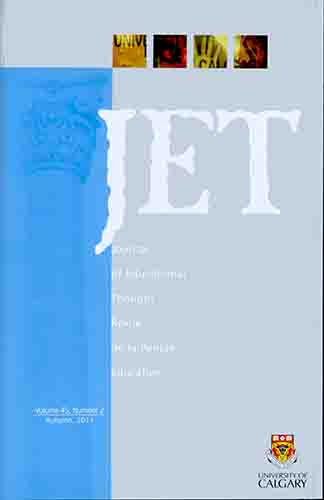Providential Deism, Divine Reason, and Locke's Educational Theory
DOI:
https://doi.org/10.55016/ojs/jet.v45i2.52225Abstract
This essay uses Charles Taylor's recent description of secularity to rethink an important historical example of the relation among religion, reason, and education. Locating Locke's educational theory in the historical period that Taylor calls providential deism, the article suggests that Locke's idea of good education, namely, moving students to follow the dictates of reason alone, cannot proceed without two related features of reason, its infallibility and its inherent attractiveness. These two, but especially the latter give reason a transcendent if not divine status, akin to Providential grace. The article claims that this not only gives education a central role in society's improvement, but it challenges Taylor's claim that Providential deism is an eclipse of grace. It does so by arguing that in this transition Providential grace comes in the form of reason's inherent attractiveness and that good education is key to expose students to this inherent attractiveness of reason.
Downloads
Downloads
Published
Issue
Section
License
The Journal of Educational Thought retains first publication rights for all articles. The Journal grants reproduction rights for noncommercial educational purposes with the provision that full acknowledgement of the work’s source be noted on each copy. The Journal will redirect to the appropriate authors any inquiries for further commercial publication of individual articles. All authors wishing to publish in JET will be asked to fill in and sign a Consent to Publish and Transfer of Copyright agreement.
Authors must affirm that any submission to JET has not been and will not be published or submitted elsewhere while under considration by JET.

